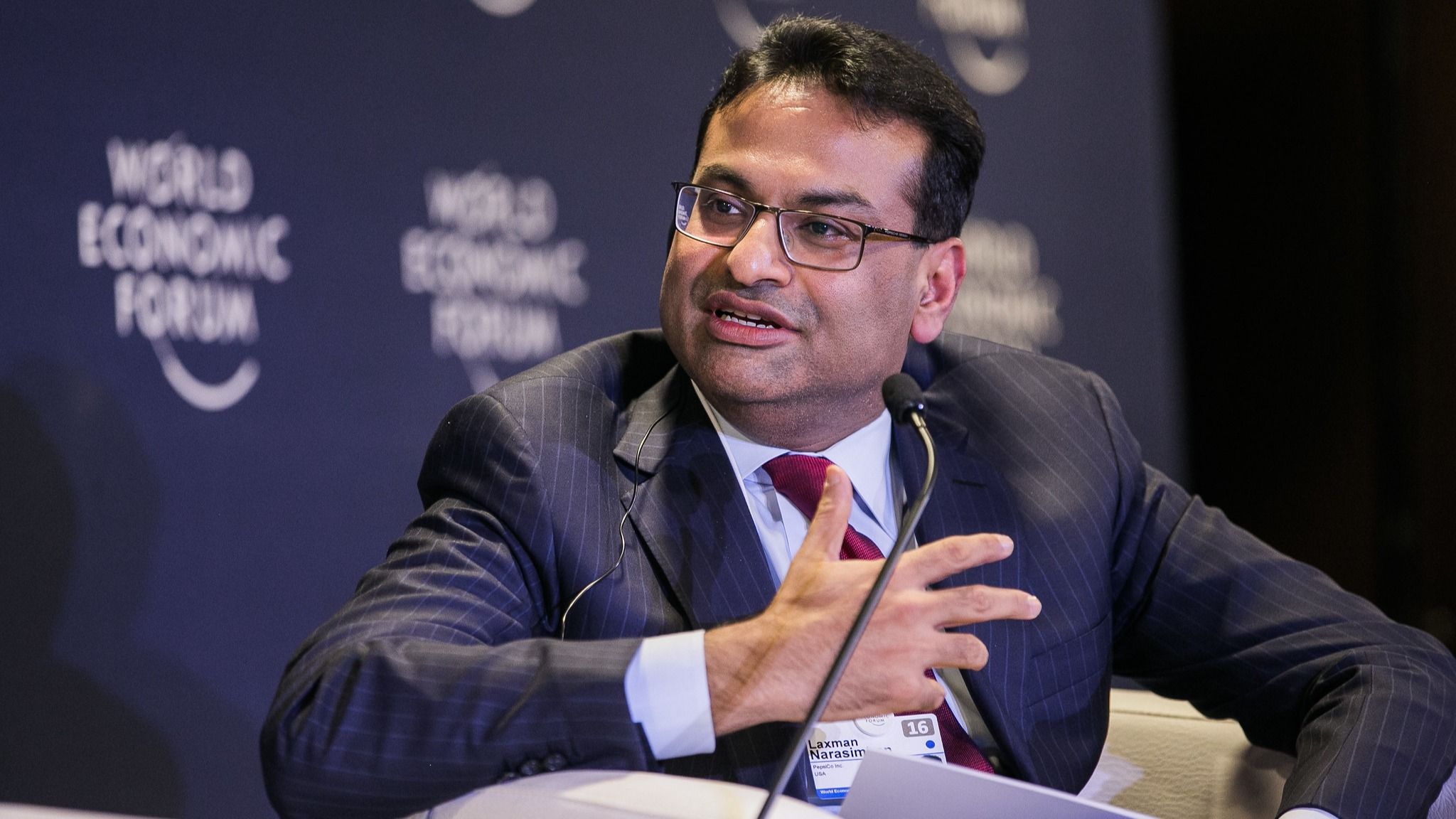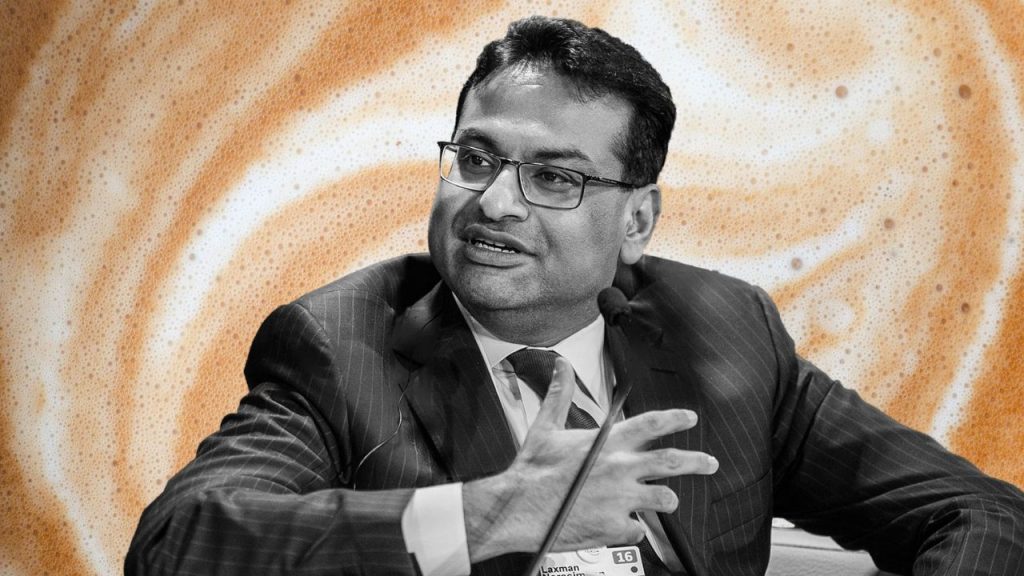Laxman Narasimhan’s Career Trajectory

Laxman Narasimhan, the current CEO of Starbucks, boasts a distinguished career in the consumer goods industry, marked by strategic leadership roles at PepsiCo and Reckitt Benckiser. His journey has been characterized by a steady climb up the corporate ladder, coupled with a knack for driving growth and innovation in global markets.
Career at PepsiCo
Narasimhan joined PepsiCo in 1999, starting his journey as a management consultant in the company’s beverage division. This early exposure to the intricacies of the beverage industry laid the foundation for his future successes. Over the next 12 years, he climbed the ranks, taking on increasingly challenging roles.
- He spearheaded the launch of several new products and oversaw the expansion of PepsiCo’s presence in emerging markets, contributing significantly to the company’s global growth strategy.
- Narasimhan’s leadership skills were further honed when he took the reins of PepsiCo’s Quaker Oats business in 2005. During his tenure, he led the successful integration of Quaker Oats into the PepsiCo portfolio, enhancing its global reach and brand recognition.
- In 2012, he was appointed as the CEO of PepsiCo’s North American Beverages business, a crucial role that saw him spearheading the company’s efforts to revitalize its core beverage brands in the United States and Canada. This role demonstrated his ability to navigate complex market dynamics and drive innovation in a competitive environment.
Career at Reckitt Benckiser
In 2013, Narasimhan took on a new challenge by joining Reckitt Benckiser, a global consumer goods giant. He was appointed as the company’s Chief Commercial Officer, tasked with driving sales and marketing efforts across its diverse portfolio of brands.
- Narasimhan’s strategic vision and understanding of consumer trends played a key role in Reckitt Benckiser’s growth during his tenure. He spearheaded the company’s efforts to expand its presence in emerging markets, particularly in Asia and Latin America, and spearheaded the development of new product lines that catered to evolving consumer preferences.
- In 2016, he was promoted to CEO of Reckitt Benckiser, becoming the first non-British CEO in the company’s history. This appointment underscored his exceptional leadership capabilities and global business acumen. He led the company through a period of significant change, driving innovation, streamlining operations, and strengthening its brand portfolio.
Leadership Styles
Narasimhan’s leadership style has been described as collaborative and data-driven. He is known for his ability to inspire and motivate teams, fostering a culture of innovation and continuous improvement. His approach emphasizes building strong relationships with stakeholders, both internal and external, to achieve common goals.
- At PepsiCo, he cultivated a culture of experimentation and agility, encouraging employees to embrace new ideas and take calculated risks. This approach was instrumental in driving innovation and expanding the company’s reach in emerging markets.
- At Reckitt Benckiser, he adopted a more strategic and focused approach, emphasizing efficiency and operational excellence. He implemented a series of initiatives aimed at streamlining operations, reducing costs, and improving profitability. This approach was crucial in navigating the company through a period of industry consolidation and increased competition.
Leadership at Starbucks

Laxman Narasimhan took the helm of Starbucks in April 2023, inheriting a company facing several challenges. The coffee giant had been grappling with a complex mix of issues, including declining customer satisfaction, rising operational costs, and a changing consumer landscape. Narasimhan’s arrival marked a new era for Starbucks, with a focus on addressing these challenges and charting a path for future growth.
Initial Strategies for Revitalizing Starbucks
Narasimhan’s initial strategies for revitalizing Starbucks focused on enhancing the customer experience, improving operational efficiency, and investing in innovation. He recognized the need to restore customer trust and loyalty, address concerns about declining service quality, and adapt to evolving consumer preferences.
Customer Experience
Narasimhan recognized that the customer experience was paramount to Starbucks’ success. He prioritized initiatives to enhance service quality, improve store cleanliness, and personalize the customer experience. He also emphasized the importance of employee engagement and training, believing that empowered and well-trained employees would deliver a superior customer experience.
Operational Efficiency
Narasimhan understood that operational efficiency was crucial for profitability and growth. He implemented measures to streamline operations, reduce costs, and optimize supply chain management. He also focused on leveraging technology to enhance operational efficiency and improve customer convenience.
Innovation
Narasimhan recognized the importance of innovation in maintaining Starbucks’ competitive edge. He emphasized the need to develop new products, services, and technologies that cater to evolving consumer preferences and market trends. He also encouraged a culture of experimentation and collaboration, fostering innovation across the organization.
Vision for the Future of Starbucks, Laxman narasimhan
Narasimhan’s vision for the future of Starbucks is one of growth, innovation, and customer-centricity. He envisions a company that is a leader in the coffee industry, known for its exceptional customer experience, innovative products, and commitment to sustainability. He aims to expand Starbucks’ global footprint, while also focusing on building a strong and resilient brand that resonates with customers around the world.
Impact on the Coffee Industry: Laxman Narasimhan
/shethepeople/media/media_files/R52oQKHWHlkwHmejoAEK.png)
Narasimhan’s leadership at Starbucks has significantly impacted the coffee industry, reshaping consumer trends and market dynamics. His strategic initiatives have been instrumental in driving innovation, enhancing customer experiences, and fostering sustainability within the coffee sector.
Strategic Initiatives and Their Impact
Narasimhan’s leadership has been marked by a series of strategic initiatives that have redefined the coffee industry landscape. These initiatives have focused on enhancing customer experience, promoting innovation, and prioritizing sustainability.
- Digital Transformation: Narasimhan has spearheaded a significant digital transformation at Starbucks, leveraging technology to enhance customer experience. This includes the introduction of mobile ordering and payment systems, personalized recommendations, and loyalty programs. These initiatives have streamlined the ordering process, increased convenience, and fostered customer engagement, influencing consumer trends toward a more digital and personalized coffee experience.
- Innovation in Coffee Products: Starbucks has introduced new coffee products and beverages under Narasimhan’s leadership, catering to evolving consumer preferences and expanding its product portfolio. These innovations include plant-based milk alternatives, cold brew coffee, and nitro cold brew, which have become popular trends in the coffee industry, attracting new customer segments and driving market growth.
- Sustainability Initiatives: Narasimhan has placed a strong emphasis on sustainability at Starbucks, promoting ethical sourcing practices and environmental responsibility. This includes initiatives like the “Starbucks Coffee and Farmer Equity Practices” program, which supports coffee farmers and promotes sustainable farming practices. These initiatives have fostered a positive image for Starbucks among environmentally conscious consumers, influencing industry-wide adoption of sustainable practices.
Consumer Trends and Market Dynamics
Narasimhan’s leadership has directly influenced consumer trends and market dynamics within the coffee industry. His focus on digital transformation, innovation, and sustainability has resonated with consumers, shaping their preferences and expectations.
- Digital-First Approach: Narasimhan’s digital initiatives have fostered a consumer trend towards digital ordering and payment, influencing other coffee companies to adopt similar strategies. This has led to a shift in consumer behavior, with more customers opting for convenient and personalized experiences through mobile apps and online platforms.
- Growing Demand for Specialty Coffee: Starbucks’ introduction of innovative coffee products, such as cold brew and nitro cold brew, has fueled a growing demand for specialty coffee experiences. This trend has been observed across the coffee industry, with other companies introducing similar offerings to cater to consumer preferences for unique and high-quality coffee experiences.
- Sustainability as a Key Factor: Starbucks’ commitment to sustainability has influenced consumer choices, with increasing numbers of consumers prioritizing ethical sourcing and environmental responsibility when selecting their coffee brands. This has led to a growing market for sustainable coffee products and has encouraged other coffee companies to adopt similar practices to meet consumer expectations.
Laxman Narasimhan, a seasoned executive with a proven track record in the consumer goods industry, stepped into the role of CEO of Starbucks in April 2023. He inherits a company known for its global reach and iconic brand, a position that demands a leader with a clear vision and strategic acumen.
Narasimhan, who previously served as CEO of Reckitt Benckiser, is well-equipped to navigate the complexities of the ceo of starbucks role, bringing a wealth of experience in leading global brands and driving innovation.
Laxman Narasimhan, the CEO of Starbucks, has a keen eye on the fast-casual market, as evidenced by his recent investments in various companies. One such investment is in the chipotle stock , a move that reflects his belief in the potential of this segment.
Narasimhan’s strategic approach, combined with his understanding of consumer trends, makes him a formidable player in the ever-evolving food industry.